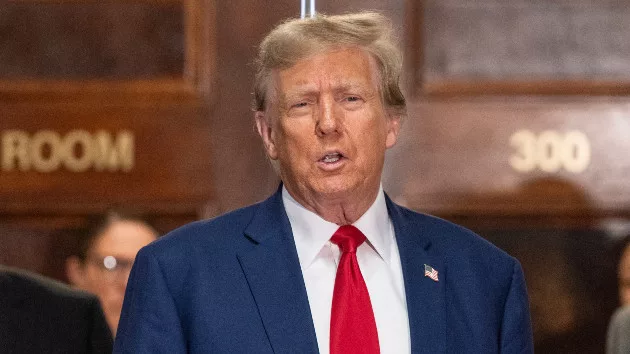The Supreme Court’s ruling Monday in former President Donald Trump’s 2020 election interference case makes it all but certain that the Republican will not face trial in Washington ahead of the November election.
The Supreme Court did not dismiss — as Trump had wanted — the indictment alleging he illegally schemed to cling to power after he lost to President Joe Biden. But the ruling still amounts to a major victory for the presumptive Republican presidential nominee, whose legal strategy has focused on delaying the proceedings until after the election.
Trump posted in all capital letters on his social media network shortly after the decision was released: “BIG WIN FOR OUR CONSTITUTION AND DEMOCRACY. PROUD TO BE AN AMERICAN!”
The timing of the trial matters because if Trump defeats Biden, he could appoint an attorney general who would seek the dismissal of this case and the other federal prosecutions he faces. Or Trump could potentially order a pardon for himself.
Here’s a look at the ruling and what comes next:
_____
The court’s conservative majority said former presidents have absolute immunity from prosecution for official acts that fall within their “exclusive sphere of constitutional authority” and are presumptively entitled to immunity for all official acts. They do not enjoy immunity for unofficial, or private, actions.
The ruling means that special counsel Jack Smith cannot proceed with significant allegations in the indictment — or must at least defend their use in future proceedings before the trial judge.
The justices, for instance, wiped out Smith’s use of allegations that Trump tried to use the investigative power of the Justice Department to undo the election results, holding that his communications with agency officials is plainly protected from prosecution.
The justices sent the case back to U.S. District Judge Tanya Chutkan, who must now “carefully analyze” whether other allegations involve official conduct for which the president would be immune from prosecution.
Among the issues for further analysis is Trump’s relentless badgering of then-Vice President Mike Pence to not certify the electoral votes on Jan. 6, 2021. The justices said it was “ultimately the Government’s burden to rebut the presumption of immunity” in Trump’s interactions with Pence.
The order also directed additional analysis on the various posts on X, then known as Twitter, that Trump made — as well as a speech he delivered to supporters — in the run-up to the riot at the U.S. Capitol. Determining whether that communication represents official versus unofficial acts, the justices said, “may depend on the content and context of each” and thus needs more scrutiny.
The justices required fresh fact-finding on one of the more stunning allegations in the indictment — that Trump had participated in a scheme orchestrated by allies to enlist slates of fraudulent electors in battleground states won by Biden who would falsely attest that Trump had won in those states.
The Trump team had argued that the selection of alternate electors was in keeping with Trump’s presidential interest in the integrity and proper administration of the federal elections and cited as precedent an episode he said took place in the disputed election in 1876.
The Smith team, by contrast, portrayed the scheme as a purely private action that implicated no presidential responsibility.
The conservative justices in their majority opinion didn’t answer the question as to which side was right, instead saying that “determining whose characterization may be correct, and with respect to which conduct, requires a close analysis of the indictment’s extensive and interrelated allegations.”
Unlike Trump’s interactions with the Justice Department, the justices said, “this alleged conduct cannot be neatly categorized as falling within a particular Presidential function. The necessary analysis is instead fact specific, requiring assessment of numerous alleged interactions with a wide variety of state officials and private persons.”


Comments are closed